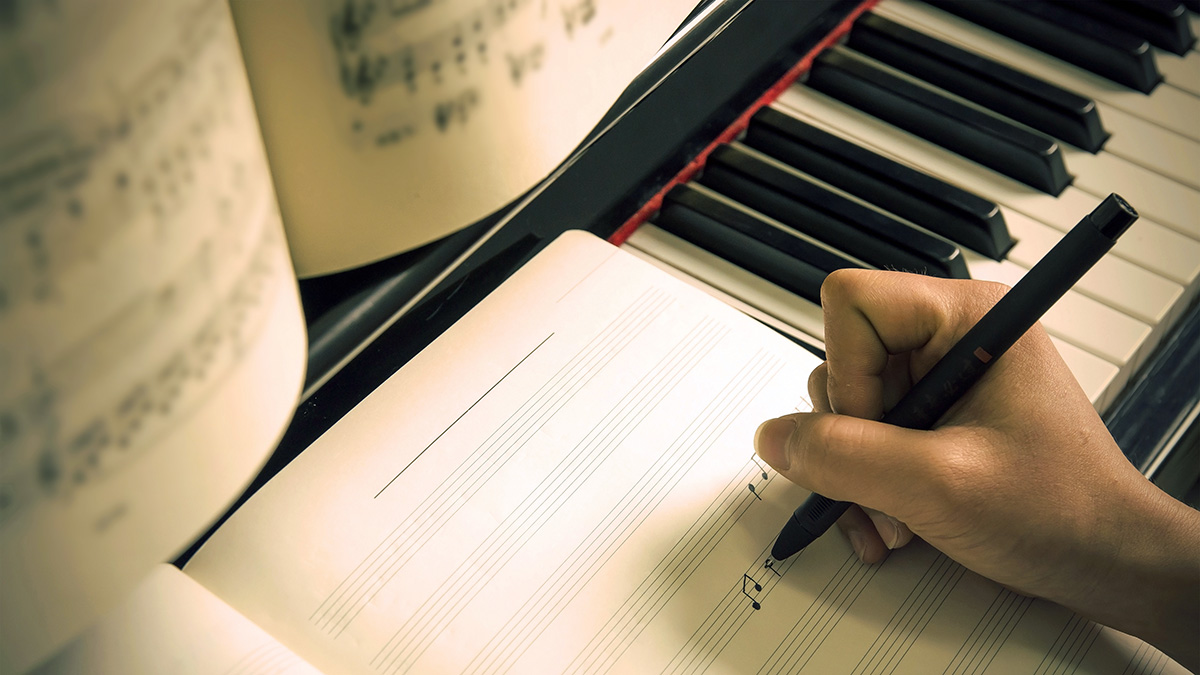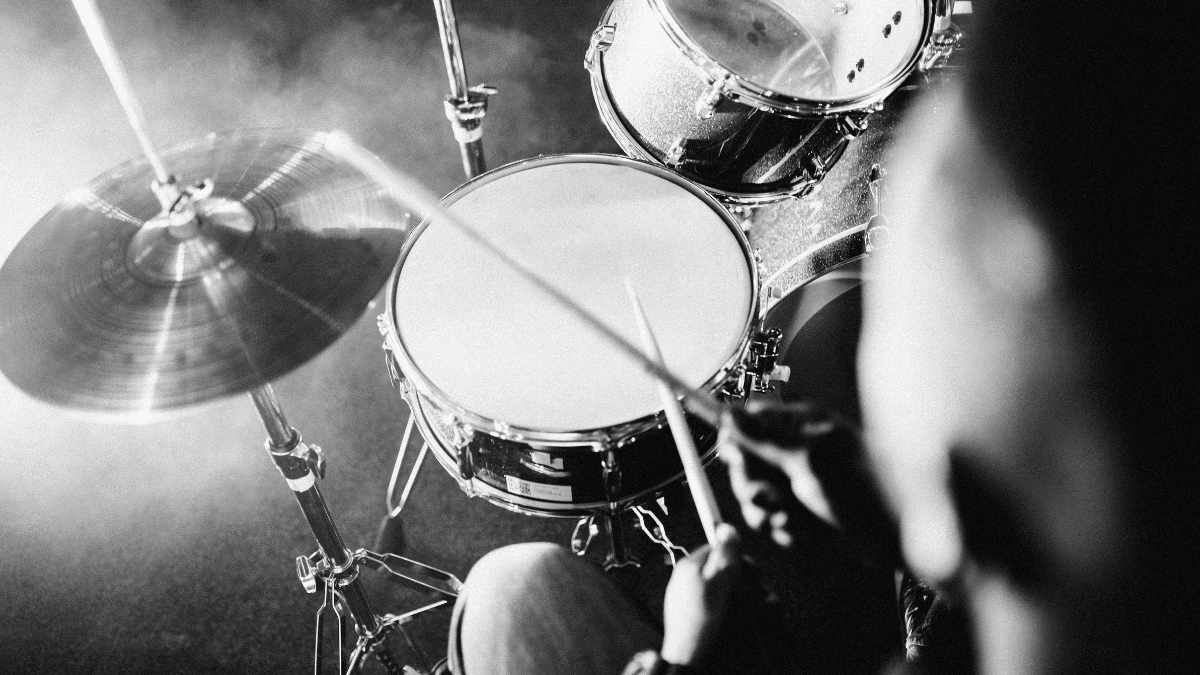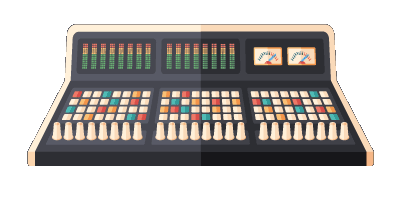The Songwriter's Journey: How To Write A Song in 7 Simple Steps

If only writing a song was like building a piece of furniture. There would be instructions, tools included, and a finished product that looks just like the picture on the box. Songwriting is an inexact science. Fortunately, we have the freedom as creatives to try different things.
In this article, we will offer you a 7 step method for songwriting to help you out in your musical journey.
Music is constantly evolving, and while traditional songwriting is defined as lyrics and melody, many writers, producers, and musicians often produce a rough mix or demo of a song during the 'write.' Therefore, as part of this list, we'll touch on some basic production and arrangement work in our 'writing' process.
1. Start with a groove
The easiest place to begin writing a song is with a groove or beat. Program a bare-bones groove in your DAW, or download a loop from a royalty-free sample library like Splice.
Find something you like and move on, don't get distracted by programming fills, layering sounds, or adding any processing yet. We only need the basic structure to support the rest of our writing.
Pro Tip: Select 'random' sorting selection when using a sample library, this way you find something less used by other writers and producers.
2. Add harmony
Now we'll need to write a chord progression or riff over our beat. Loop the beat and improvise, or use a reference track to write with a similar progression. A few ideas to get you started:
- Avoid using the 1 chord until the chorus
- Borrow any chord from the parallel major or minor key
- Start with a bass line and build chords from there
- Choose four chords, use two in the verse and all four in the chorus
3. Write the melody
The melody is the most important (and memorable) part of a song. Look no further than karaoke at the nearest sports bar, wedding, bat mitzvah, pool party, or office mixer for proof. Chances are your friends, family and coworkers know some of the lyrics, but can easily mumble and belt through the melody of the entire song.
Start by looping the verse or chorus, hum along or grab your instrument and start recording some ideas. When you're happy, record a 'scratch' version that you can playback as a loop to focus on writing lyrics in the next step.
4. Now add lyrics
Lyrics come after the melody not only because of the melody's importance, but because it's much easier and more effective to write lyrics to the melody. Trying to fit existing poetry into the syllabic structure of an existing melody is a giant headache, and it hurts the song.
Creativity is an exhaustive resource, so we should prioritize writing the chorus, and a verse. The second verse, bridge et al. comes later.
You may have gotten some lyrical ideas as you composed your melody, start from there, and write down everything. I'm still a big fan of the hands-on spontaneity of pen and paper. Loop the section you are working on and let it hypnotize you, try different lyrics, and don't be precious with your ideas.
If you're not sure what to write about, try to start with a song title. Another idea is to outline a problem in the verse, and solve that problem during the chorus.
5. Create an arrangement
Now that we have our song, we can build out the song's arrangement (order).
You can create section markers in your DAW, or write down the arrangement on paper, the possibilities are limitless. Some common arrangement ideas are to:
- Have an intro that is 0:06 or less
- Get to the chorus before 0:50
- Write a 2-4 bar 'pre-chorus' between the verse and chorus
- Make the 2nd verse half as long as the 1st verse
- Repeat the chorus twice at the end of the song
- Insert a stripped-down chorus before the final chorus
These are only suggestions that have worked for many writers before. I would encourage our readers to focus on writing the most honest songs; instead of writing songs solely based on algorithms, playlists, or radio-friendly formats.
6. Fill in the blanks
So we've created our arrangement, and now we may be missing a few pieces. This is where we write the elusive 'second verse', bridge, or pre-chorus. If you're writing for other people, feel free to leave the second verse blank, this way the artist has an opportunity to contribute lyrically and make the song their own.
When writing a bridge, repeat the first four steps. One technique for bridge writing is to 'fly' or copy over another section of the song, and write a different melody and lyrics to fit. You can also create excitement by using chords in the bridge not used elsewhere in the song.
7. Finish the demo
Start producing ONLY after the entire 'song' is written. I cannot stress the importance of adding production elements after writing. A great melody and lyric speak for themselves, and the more ear candy we pile on during the writing process, the more watered down those ideas can become. Production can cover up inadequacies in the writing process, and deceive you into committing to an idea not because it is good, but because the production sounds good.
If your song slams, production will only make it better, not the other way around.



Comments:
Feb 16, 2022
Feb 15, 2022
Feb 13, 2022
Login to comment on this post